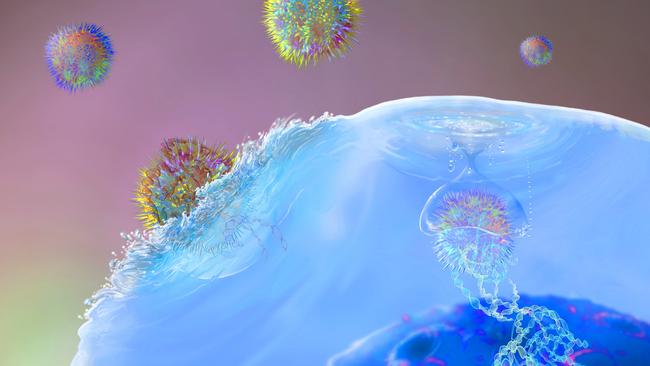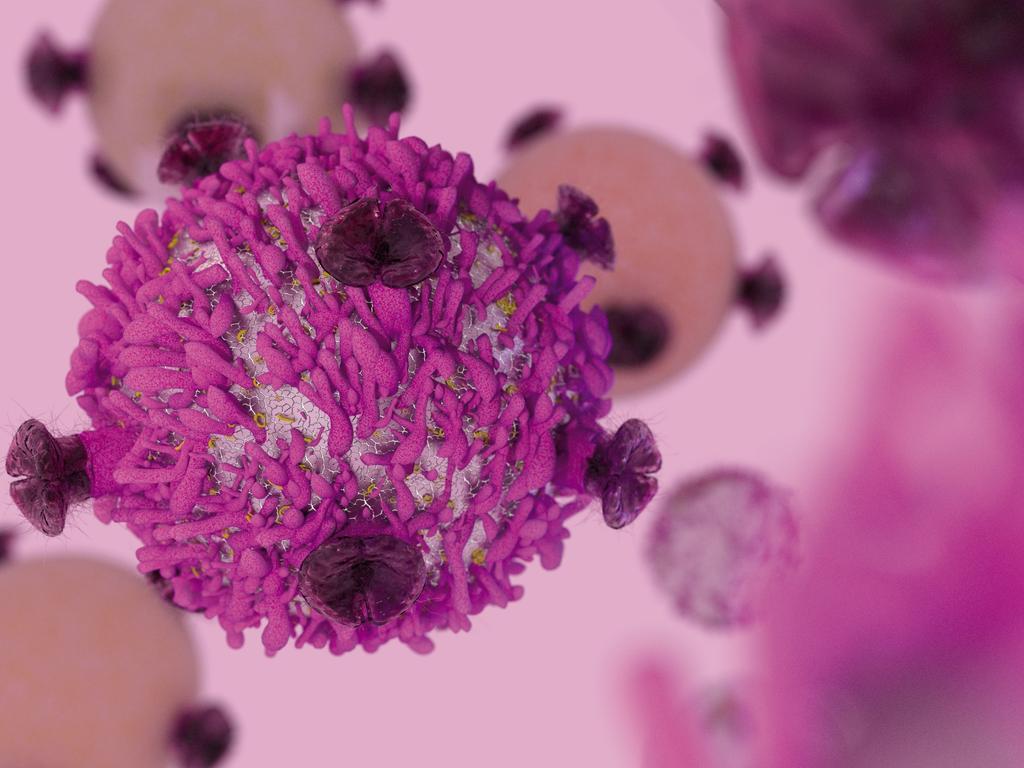Immunotherapy could be expanded to most cancer types following findings
CAR T-cell therapy is a one-off treatment that has fewer side-effects than chemotherapy but currently suffers from very low efficacy rates on solid tumours.

A wider range of cancer patients could in future be eligible for an effective and less invasive treatment due to findings by the Peter MacCallum Cancer Centre.
The research, which was to be published in Nature overnight, could boost the efficacy of a kind of immunotherapy – Chimeric Antigen Receptor T-cell therapy – to treat solid tumours, which account for 90 per cent of all tumours.
CAR T-cell therapy, which is already used to treat patients with other kinds of cancers, involves modifying a patient’s white blood cells to help recognise and fight cancer. The treatment is highly effective on certain cancers. Response rates are between 80 and 90 per cent on acute lymphoid leukaemia, but fall below 5 per cent on other types of cancer, said researcher Phil Darcy, a professor at the University of Melbourne.
“Our research identified a gene called FOXO1 that can be stimulated to enhance CAR T-cell polyfunctionality, metabolic fitness and efficacy against solid tumours,” he said.
“What that means is it allows these cells to persist better when we transfer them back into the host, back into the patient. Then that leads to better efficacy, anti-tumour efficacy responses.”
Fellow researcher Paul Beavis, assistant professor at the University of Melbourne, said the lack of longevity of the modified T-cells was seen as a critical factor in why the treatment was ineffective for solid tumours.
“After approximately two months, you can no longer detect these cells in the patient,” he said. “Whereas in the blood cancers, where it does work well, these CAR T-cells can be detected for up to 10 years. So there’s a pressing need to be able to increase the durability of the response.”
“One of the advantages of CAR T-cell therapy is that there are relatively fewer side effects compared to chemotherapy,” Professor Darcy said.
“Also, it’s a one-off treatment, which, when it works, results in really long-term remissions.”
The researchers said they found a “10 times increased numbers” of the modified T-cells in mice compared to conventional modifications.
“The responses that we’ve seen in our model systems are the most impressive that we’ve seen,” Dr Beavis said.






